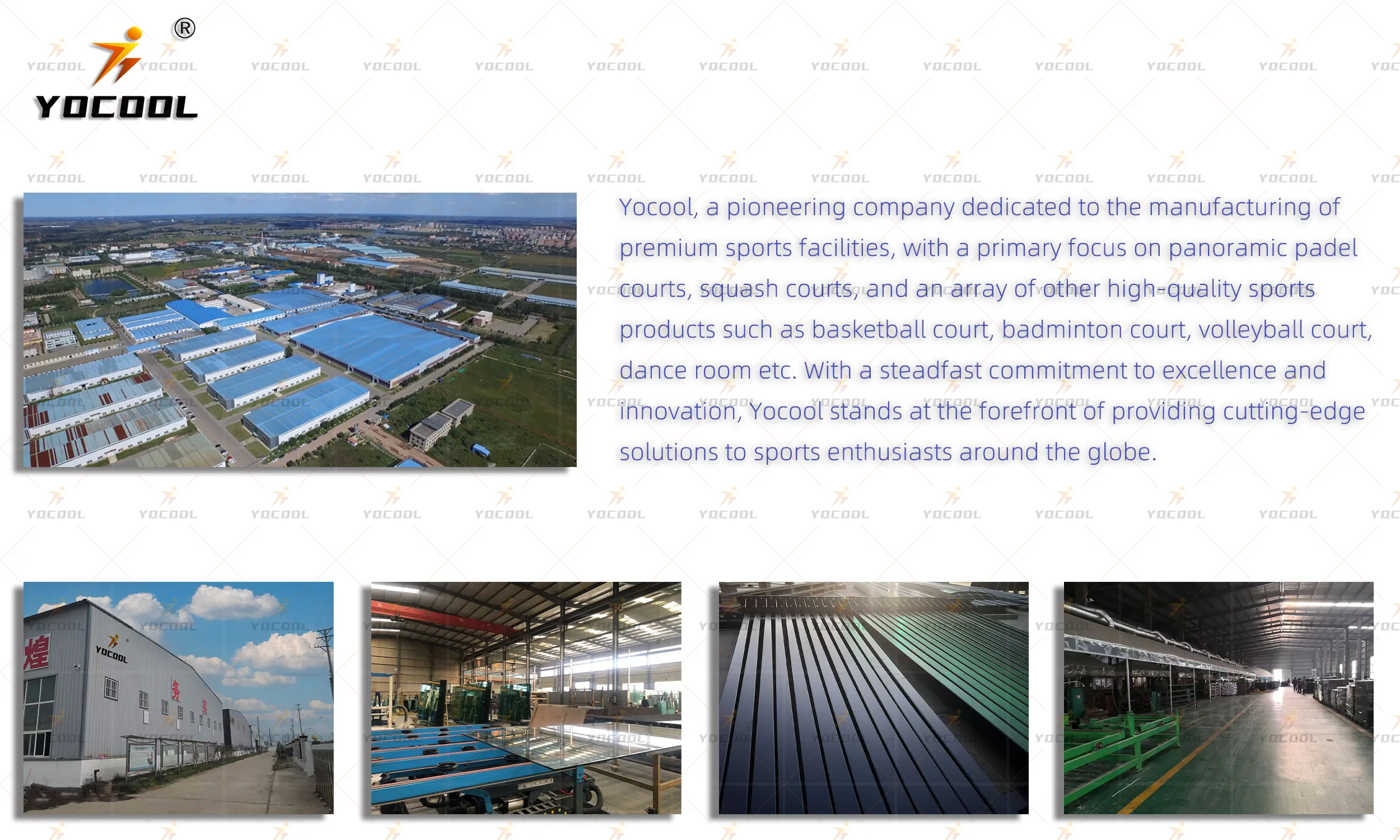

The Rise of Padel in China A Panoramic View of Padel Courts
Padel, a racquet sport that has been gaining traction globally, is making significant inroads in China. As the sport merges the dynamics of tennis and squash, its popularity has surged in urban areas, evolving into a social phenomenon that is reshaping recreational activities. This article will explore the panoramic development of padel courts in China and the implications for sports culture.
Understanding Padel
Padel is typically played in doubles on an enclosed court, which is about one-third the size of a tennis court. Players use solid rackets and a low-compression ball. The game is known for its fast-paced, friendly nature, allowing for both competitive play and social interaction, making it particularly appealing in densely populated cities.
The Emergence of Padel Courts in China
In recent years, China's urban landscape has been enriched by the establishment of numerous padel courts, catering to a growing demographic eager for new sporting experiences. Major cities like Beijing, Shanghai, and Guangzhou are at the forefront, incorporating modern padel facilities into parks, sports complexes, and dedicated padel clubs.
The design of these courts often reflects a blend of modern architecture and traditional Chinese elements, creating not just a space for sports but a visual spectacle. Large glass walls, vibrant colors, and eco-friendly materials are commonly used, attracting both players and spectators alike. The panoramic view offered by these courts allows for an immersive experience, where the game unfolds against the backdrop of urban life.
Community and Social Impact
The introduction of padel courts has fostered community engagement and social interaction. Unlike traditional sports that may require intensive training, padel is accessible to people of all ages and skill levels. This inclusivity has transformed padel into a social sport, where friends and families gather to enjoy a game, further promoting the idea of wellness and physical fitness.

Moreover, many clubs organize tournaments and events that bring together players from different backgrounds, encouraging a sense of camaraderie. Such events often include not just competitions but also workshops, coaching sessions, and social gatherings, strengthening the community bond and fostering new relationships.
Economic Aspects and Professionalization
As the sport evolves, so too does its economic impact. The demand for padel courts has led to investments from both private and municipal sectors, creating job opportunities in coaching, facility maintenance, and event management. Additionally, padel-related businesses, such as sporting goods stores and racquet manufacturers, are emerging, contributing to local economies.
The professionalization of the sport is also on the rise, with the establishment of local leagues and the promotion of elite players. This development opens avenues for sponsorships and media coverage, propelling padel into the mainstream sports market in China.
Cultural Integration
Padel's arrival in China presents an exciting intersection of culture and sport. The game’s social aspect resonates with traditional Chinese values surrounding community and harmony, while its competitive nature appeals to a burgeoning youth demographic looking for energetic activities. The combination of these factors promotes a cultural shift towards more active lifestyles, contributing to health and wellness initiatives championed by both the government and private sectors.
Future Prospects
Looking forward, the potential for growth in padel is enormous. As more facilities are built and awareness spreads, it is likely that padel will become a staple of urban sports culture in China. Initiatives to incorporate padel into schools and community programs could further elevate its popularity, establishing it as a sport for future generations.
In conclusion, the panoramic development of padel courts in China signifies not just the sport's rise but a broader cultural and social transformation. Padel represents a fusion of modern leisure and traditional community values, paving the way for a healthier, more active society. As we witness this evolution, it is clear that the foundations being laid today will shape the future of recreational sports in China for years to come.
Premium Rubber Composite Floor for Ultimate Durability & Safety Rubber Floor Mat Solutions
High-Quality Industrial Flooring Solutions for Factories Expert Installation & Cost Saving
Premium Rubber Brick Flooring Durable & Slip-Resistant
Durable & Non-Slip Rubber Flooring for Gym, Garage, Home
Durable Industrial Flooring Solutions China Padel Install
Durable Rubber Floor Slip-Resistant & Easy Clean